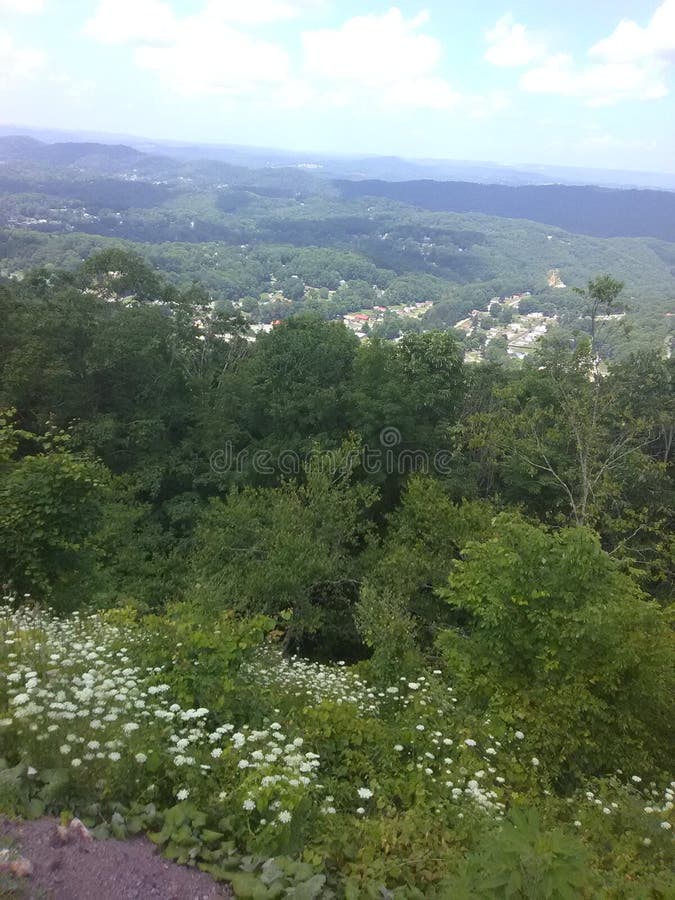Welcome to the breathtaking world of mountain heritage outdoors in West Virginia, where the beauty of nature meets a rich tapestry of cultural history. Nestled in the heart of the Appalachian Mountains, this region offers an unparalleled experience for adventure seekers, nature enthusiasts, and history lovers alike. From its stunning landscapes to its deep-rooted traditions, West Virginia’s outdoor heritage is a treasure waiting to be discovered.
West Virginia, often referred to as the "Mountain State," is renowned for its diverse natural attractions and vibrant cultural scene. Whether you're hiking through lush forests, exploring ancient caves, or learning about the state's storied past, there's something for everyone to enjoy. This article will take you on a journey through the mountain heritage outdoors in West Virginia, highlighting its unique features, activities, and historical significance.
As we delve deeper into the wonders of West Virginia, you'll discover why this region has become a top destination for those seeking adventure and relaxation. With its stunning vistas, rich history, and welcoming communities, West Virginia's mountain heritage is a must-visit for anyone looking to experience the best of the great outdoors.
Read also:Karla Bonoff Married Exploring The Life Love And Legacy Of The Legendary Singersongwriter
Table of Contents
- Introduction to Mountain Heritage Outdoors
- Geography and Natural Features
- Outdoor Activities in West Virginia
- Historical Significance of the Appalachian Mountains
- Wildlife and Conservation Efforts
- Best Seasons to Visit
- Travel Tips for Exploring West Virginia
- Local Communities and Cultural Heritage
- Conservation Projects in the Region
- Conclusion and Call to Action
Introduction to Mountain Heritage Outdoors
West Virginia's mountain heritage outdoors is a celebration of the state's natural beauty and cultural richness. The Appalachian Mountains, which span much of the state, offer a wide range of outdoor activities, from hiking and rock climbing to whitewater rafting and birdwatching. These activities are not only enjoyable but also provide an opportunity to connect with nature and learn about the region's unique history.
In addition to its recreational offerings, West Virginia's mountain heritage is steeped in tradition and folklore. From the music and dance of the region to its crafts and cuisine, the cultural heritage of the Mountain State is as diverse as its landscapes. Exploring this heritage allows visitors to gain a deeper appreciation for the people and places that make West Virginia special.
Geography and Natural Features
Appalachian Mountain Range
The Appalachian Mountains are a defining feature of West Virginia's landscape. Stretching across the eastern United States, this ancient mountain range provides the perfect backdrop for outdoor adventures. The mountains in West Virginia are characterized by their rugged terrain, dense forests, and numerous rivers and streams.
Key Natural Features
- Monongahela National Forest
- New River Gorge National Park
- Cheat Mountain and Dolly Sods Wilderness
These natural features offer a variety of ecosystems, from high-elevation spruce forests to rocky plateaus and deep gorges. Each area has its own distinct character and attractions, making them must-visit destinations for nature lovers.
Outdoor Activities in West Virginia
West Virginia is a paradise for outdoor enthusiasts, offering a wide array of activities that cater to all skill levels and interests. From adrenaline-pumping adventures to peaceful nature walks, there's something for everyone in the Mountain State.
Hiking and Backpacking
With over 2,000 miles of trails, West Virginia is a hiker's dream. Popular trails include the Appalachian Trail, the North Bend Rail Trail, and the Seneca Trail. These routes take you through some of the most scenic parts of the state, offering breathtaking views and opportunities to spot wildlife.
Read also:Alexandre Robicquet Age Unveiling The Fascinating Journey Of A Tech Visionary
Whitewater Rafting
The New River Gorge is one of the premier whitewater rafting destinations in the country. Whether you're a beginner or an experienced rafter, you'll find thrilling rapids and stunning scenery on this iconic river. Other popular rafting spots include the Gauley River and the Cheat River.
Rock Climbing
West Virginia's sandstone cliffs provide world-class climbing opportunities. The New River Gorge alone boasts over 1,400 climbing routes, ranging from beginner-friendly paths to challenging overhangs. Climbers from around the globe flock to this area to test their skills and enjoy the breathtaking views.
Historical Significance of the Appalachian Mountains
The Appalachian Mountains have played a significant role in the history and culture of West Virginia. From the early settlers who carved out a life in these rugged lands to the coal miners who fueled the nation's industrial growth, the mountains have been a source of both struggle and prosperity.
Coal Mining Heritage
Coal mining has been a cornerstone of West Virginia's economy for over a century. The industry has shaped the state's culture, politics, and landscape. Today, visitors can explore mining museums and historical sites to learn about this vital part of West Virginia's past.
Civil War Sites
West Virginia was formed during the Civil War, and many important battles were fought in the region. Harpers Ferry, a key strategic location, changed hands multiple times during the conflict. Today, visitors can tour Civil War battlefields and learn about the events that shaped the state's history.
Wildlife and Conservation Efforts
West Virginia's mountain heritage outdoors is home to a diverse array of wildlife. From black bears and white-tailed deer to rare bird species and native fish, the region's ecosystems support a wide range of animals. Conservation efforts are underway to protect these species and their habitats.
Endangered Species
Several species in West Virginia are listed as endangered or threatened, including the Cheat Mountain salamander and the Virginia big-eared bat. Conservationists are working to preserve these animals and their habitats through research, habitat restoration, and public education.
Protected Areas
West Virginia has established numerous protected areas to safeguard its natural resources. These include national parks, wildlife refuges, and state forests. By visiting these areas, you can help support conservation efforts and enjoy the beauty of the region's wildlife.
Best Seasons to Visit
West Virginia's mountain heritage outdoors can be enjoyed year-round, with each season offering its own unique charm. Spring brings wildflowers and blooming trees, while summer offers warm weather and endless outdoor activities. Fall is famous for its vibrant foliage, and winter provides opportunities for skiing and snowshoeing.
Spring and Summer
During the warmer months, visitors can enjoy hiking, camping, and water sports. The mild temperatures and lush greenery make it an ideal time to explore the state's natural beauty.
Fall and Winter
In the fall, the mountains come alive with color as the leaves change to brilliant shades of red, orange, and yellow. Winter brings snow-covered landscapes and the chance to experience winter sports in a picturesque setting.
Travel Tips for Exploring West Virginia
To make the most of your visit to West Virginia's mountain heritage outdoors, consider the following tips:
- Plan your itinerary in advance to ensure you don't miss any must-see attractions.
- Check weather conditions and trail conditions before heading out.
- Bring appropriate gear and clothing for the activities you plan to do.
- Respect local wildlife and ecosystems by following Leave No Trace principles.
Local Communities and Cultural Heritage
West Virginia's mountain heritage is not just about its natural beauty but also its vibrant communities and rich cultural heritage. From traditional music and dance to local crafts and cuisine, the state offers a wealth of cultural experiences.
Festivals and Events
Throughout the year, West Virginia hosts a variety of festivals and events celebrating its cultural heritage. These include the Vandalia Gathering, the Mountain State Forest Festival, and the West Virginia Highland Festival. Attending these events is a great way to immerse yourself in the local culture.
Local Cuisine
West Virginia's cuisine reflects its rural roots and diverse influences. Staples include fried chicken, beans and cornbread, and ramp dishes. Don't miss the opportunity to try these local delicacies during your visit.
Conservation Projects in the Region
Efforts to conserve West Virginia's natural resources are ongoing and involve a variety of organizations and initiatives. These projects aim to protect the state's ecosystems, wildlife, and cultural heritage for future generations.
Partnerships and Initiatives
Collaborations between government agencies, non-profit organizations, and local communities are driving conservation efforts in West Virginia. Programs such as the Appalachian Wildlife Foundation and the West Virginia Land Trust are making significant strides in preserving the state's natural beauty.
Conclusion and Call to Action
West Virginia's mountain heritage outdoors offers a wealth of experiences for those seeking adventure, relaxation, and cultural enrichment. From its stunning landscapes and diverse wildlife to its rich history and vibrant communities, the Mountain State has something for everyone. By exploring this region, you can deepen your connection with nature and gain a greater appreciation for the people and places that make West Virginia unique.
We invite you to share your thoughts and experiences in the comments below. Whether you're planning a visit or have already explored the area, your insights can help others discover the wonders of West Virginia's mountain heritage. Don't forget to check out our other articles for more information on travel, nature, and culture.


